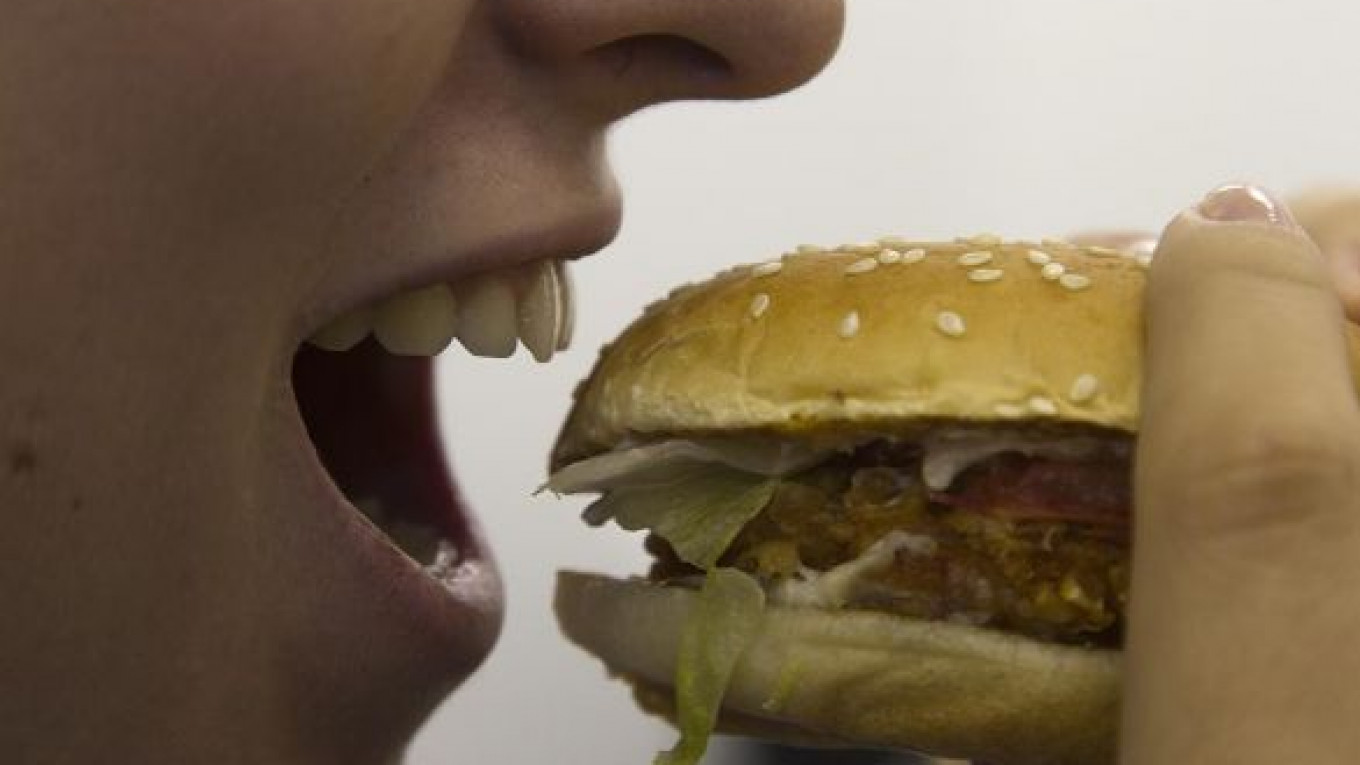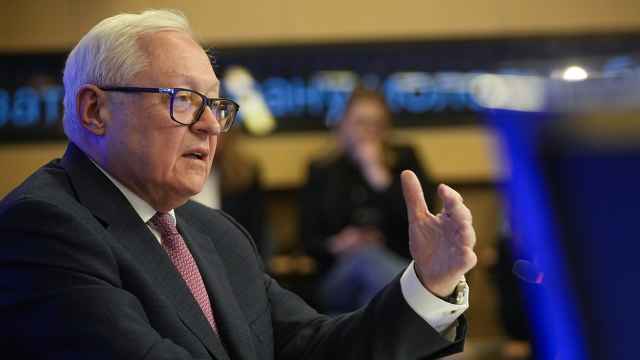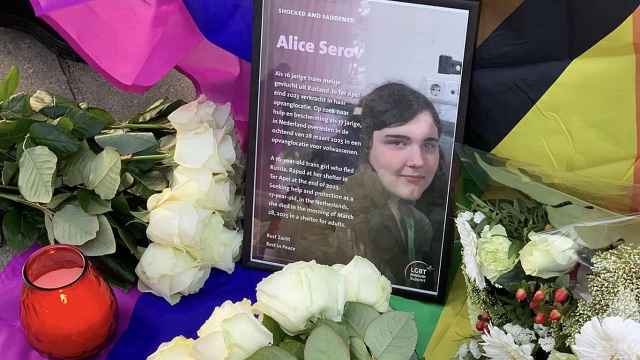Burger King is looking to catch up to its Western fast-food rivals in Russia and increase its market share, arming itself with an ambitious plan for opening restaurants and a partnership with local restaurant executives and VTB Capital.
Even with 70 restaurants in the country, it is far behind rivals such as KFC and its 200 locations, Subway and its 420 locations, and McDonald's with its 330 stores.
Burger King began serving customers in January 2010, while KFC's Russian precursor in quick chicken, Rostik's, began in the 1990s, and McDonald's started in Russia in January 1990.
"We were 20 years late to the game in Russia, but we're making progress very quickly … to capture market share," Jose Cil, president for Europe, Middle East and Africa operations for Burger King, said Tuesday.
He was speaking at a news conference celebrating Burger King's newest location in Russia, on Tsvetnoi Bulvar.
Since the opening of the first Burger King in northern Moscow's Metropolis mall, locations have appeared in the capital, the Moscow region, St. Petersburg and even Yekaterinburg, where the chain made its Urals footprint in January.
Cil said the fast-food chain now serves an average of 40,000 customers a day in Russia.
As part of the partnership agreement it signed in June with state-owned bank VTB Capital and local franchisee team Burger Rus, Burger King is "going to be opening several hundred restaurants in Russia over the next several years," Cil said.
Its current rate of about 20 openings a year compares with McDonald's 37 launches in 2011 and 45 planned launches in 2012.
Cil declined to disclose the number of openings or the timeline spelled out in the agreement, which splits ownership of Burger King's Russian business between Burger King Europe, VTB Capital and Burger Rus. Cil also didn't want to say what percentage is owned by each entity.
Burger Rus is run by Dmitry Medovoi and advised by Alexander Kolobov, who with his family co-owns the popular Shokoladnitsa chain of coffee, dessert and sandwich shops and serves as its president. Medovoi, now general director of Burger Rus, had been executive director at Shokoladnitsa, where he worked for eight years, he said.
Burger Rus is the "master franchisee" for Burger King here, running its operations and launching almost all of the 70 stores, Cil said. Though Burger Rus has the right to subfranchise and "develop certain parts" of the country, there aren't any subfranchisees right now, he said.
Burger King's other franchise partner, Ginza Project, will continue to run three restaurants for it.
Medovoi said the business will move ahead with the third-party restaurants — in essence, a true franchising model — "in several years."
Competitor McDonald's is also in the beginning stages of embracing the franchising model in Russia.
It signed up its first franchise partner only earlier this year. Rosinter, Rostik's former owner and the current holder of the Il Patio and Planeta Sushi chains, will run McDonald's stores in a number of transportation hubs.
McDonald's has been reviewing the legal and logistical aspects of franchising and is planning to scale up its franchise model, Khamzat Khasbulatov, chief executive officer of McDonald's Russia, told The Moscow Times earlier this month.
Expansion in Siberian markets is another area where Burger King will go head to head with its rivals. KFC has locations in seven cities there, while Subway has about 40, plus one in the Far East.
McDonald's has many stores in the Urals but none in Siberia. That will change: It expects to open in Krasnoyarsk at the end of 2013 or start of 2014 and is considering restaurants in Novosibirsk, Barnaul, Tomsk and Novokuznetsk.
Saying Siberia is an unsaturated market, Cil acknowledged that his company wants "to capture the market share that nobody's been able to capture yet."
But he said he isn't competing for the first-in-Siberia mantle.
"It's not like the race to the moon," he said. "What matters is that we actually do it right."
Related articles:
A Message from The Moscow Times:
Dear readers,
We are facing unprecedented challenges. Russia's Prosecutor General's Office has designated The Moscow Times as an "undesirable" organization, criminalizing our work and putting our staff at risk of prosecution. This follows our earlier unjust labeling as a "foreign agent."
These actions are direct attempts to silence independent journalism in Russia. The authorities claim our work "discredits the decisions of the Russian leadership." We see things differently: we strive to provide accurate, unbiased reporting on Russia.
We, the journalists of The Moscow Times, refuse to be silenced. But to continue our work, we need your help.
Your support, no matter how small, makes a world of difference. If you can, please support us monthly starting from just $2. It's quick to set up, and every contribution makes a significant impact.
By supporting The Moscow Times, you're defending open, independent journalism in the face of repression. Thank you for standing with us.
Remind me later.






